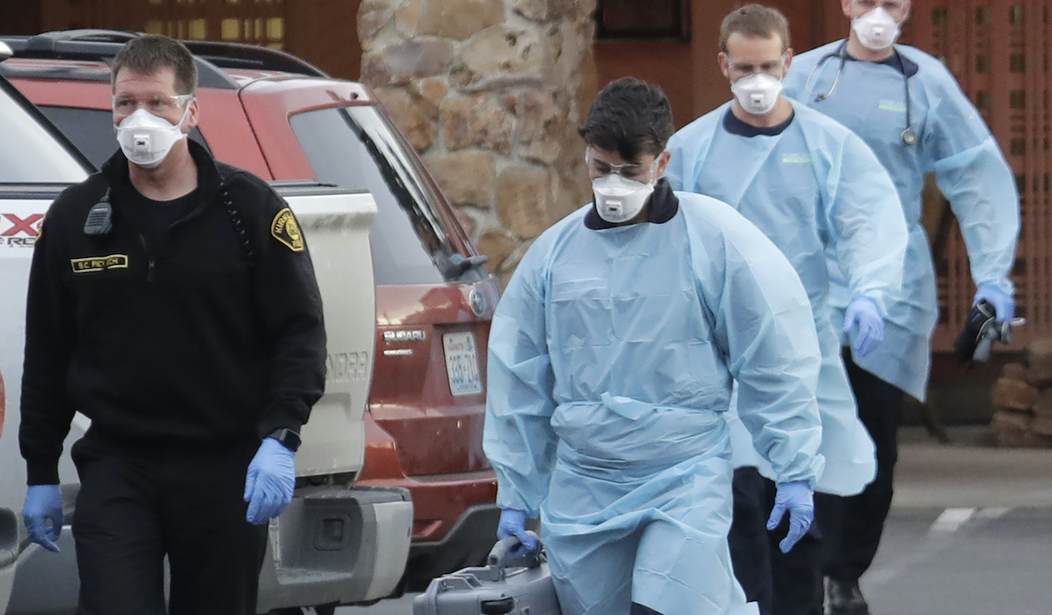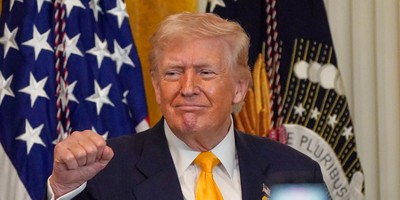I'll begin with a word on last night's address by the president. In some respects, it was strong; it emphasized the seriousness of the crisis, repeated crucially important recommendations for best hygiene practices, and reassured anxious Americans that the federal government will act to mitigate the (negative, likely temporary) economic impact. But it also failed in several key respects.
First, it focused too heavily on foreign travel restrictions. The virus is already here and spreading rapidly. I'm not opposed to additional restrictions -- Trump's early decisions on that front vis-a-vis China and Iran were heavily criticized but were exactly the right thing to do -- but Wednesday's primetime speech was woefully insufficient on both specific updates regarding expanding screening and testing capacity (the biggest blemish in the US response thus far), and guidance for drastic social distancing (needed immediately, see below). Perhaps worse was the mop-up job several presidential assertions triggered. On Special Report last evening, I made this point:
On @FoxNews @guypbenson says he hopes tonight’s address is the most vetted speech Trump ever gives.
— Debra J. Saunders (@debrajsaunders) March 11, 2020
In times such as the expansion of a global pandemic -- with markets and citizens on edge, and with a limited window to prevent Italian-level outcomes -- timely and accurate information is essential. Much of Trump's speech passed muster on this front, but this is just unacceptable:
So far I've heard stunning clarifications tonight about: 1) the European travel ban, which is actually v limited; 2) the halt on cargo/trade, which appears to have been an error (whose?); and 3) the waivers on copayments for covid19 treatments, which only apply to testing.
— Jose A. Del Real (@jdelreal) March 12, 2020
The president conveyed three pieces of wrong information, either through shoddy drafting or misspeaking, that needed to be "clarified" by administration officials almost immediately. The actual policies were better and more accurate than the speech designed to relay those policies to the public. This cannot happen. Period. This makes the administration look incompetent, it looks the president look clueless and weak, and it makes it seem as though the high-stakes address was thrown together without proper vetting, which may erode public confidence in future pronouncements made by this president on highly sensitive matters. Noting these things is not an "attack" on Trump. If you're a supporter of his, you should be angry at those who did not serve him well -- a buck that ultimately stops with him.
Recommended
The Wuhan Coronavirus must transcend politics because so many lives are on the line (again, see below). But even for those who cannot shake their obsession with politics, a blown response to the disease will harm the president's re-election chances for three reasons: (1) The otherwise excellent economy will needlessly suffer for longer, (2) questions about his capacity to do the job in times of crisis will bite, and (3) the voters who sit most squarely within the health 'danger zone,' senior citizens, tend to be Trump supporters. Every incentive, whether humanitarian or calculatingly political, is to get this right. Spreading three strands of incorrect information in an Oval Office address is leadership malpractice and political malpractice.
Now, why did the White House's top medical expert on the Coronavirus epidemic warn yesterday that the situation will deteriorate in the coming days and weeks? Because based on the data from other countries who are 'ahead' of us in the disease cycle, there are many thousands of currently-undiagnosed cases here in the United States. This is leading to the virus being transmitted by people who don't yet feel sick, so the "official" case numbers (hampered by still wholly insufficient but finally improving testing capacities and efficiencies) are a hugely lagging indicator. The numbers are going to grow much larger. Stop reading this post, and click through to read this full analysis -- especially if you consider yourself a Coronavirus "skeptic:"
Coronavirus: Why You Must Act Now by @tomaspueyo https://t.co/Pzj56UkPNY
— Steven Pinker (@sapinker) March 11, 2020
The coronavirus is coming to you. It’s coming at an exponential speed: gradually, and then suddenly. It’s a matter of days. Maybe a week or two. When it does, your healthcare system will be overwhelmed. Your fellow citizens will be treated in the hallways. Exhausted healthcare workers will break down. Some will die. They will have to decide which patient gets the oxygen and which one dies. The only way to prevent this is social distancing today. Not tomorrow. Today. That means keeping as many people home as possible, starting now.
The entire piece is filled with detailed and sobering charts that build the case. Some experts are projecting that one-third to half of the country could eventually get infected within the current status quo -- so even with "only" a one percent fatality rate (ten times worse than an average flu), that could lead to a death toll in the neighborhood of one million-plus Americans. Containment is gone. Mitigation is the key, particularly to prevent the US healthcare system from becoming overwhelmed, which is a major risk:
"Slowing and spreading out the tidal wave of cases will save lives. Flattening the curve keeps society going." https://t.co/kWL50oMXl9
— NYT Science (@NYTScience) March 12, 2020
?? France, Spain and Germany are about 9 to 10 days behind Italy in #COVID19 progression; the UK and the US follow at 13 to 16 days. In Italy we waited too long, these countries should really start implementing aggressive containment measures now. pic.twitter.com/xL7jUczpmY
— Silvia Merler (@SMerler) March 10, 2020
Look at that second chart carefully. Why is extreme social distancing so important? A new study suggests that the Wuhan Coronavirus can 'live' airborne for a few hours at a time, and on various surfaces for days. It is highly contagious. The foreign countries that have fared best during this pandemic are those that implemented very far-reaching social distancing procedures very early on. Cancelations of major events and sports leagues suspending games or barring fan attendance is a start. But it's just a start. As always, pay attention to Dr. Scott Gottlieb, a Trump alum and former FDA chief:
4. Social separation works. Every day we delay hard decisions, every day leaders don’t demand collective action, the depth of epidemic will be larger. We must act now. We have narrow window to avert a worse outcome. The virus is firmly rooted in our cities. We’re losing time 9/10
— Scott Gottlieb, MD (@ScottGottliebMD) March 12, 2020
Given all of this alarming information, what is the case against panic? The vast, vast, vast majority of people who contract Coronavirus will have zero to mild symptoms and recover easily. This is not a reason to be cavalier or complacent (transmission to vulnerable populations could still be devastating), but it's important to keep things in perspective:
Despite the global fears of coronavirus, more than 60,000 people who contracted the disease have recovered. Most have mild symptoms and rebound within two weeks, while those with more serious ailments may not improve for up to six weeks. https://t.co/zyZFCQTQD5
— The Associated Press (@AP) March 12, 2020
I'll leave you with some CDC guidelines on what to do if you have (or suspect you have) Coronavirus, as well as this valuable series from a respected doctor. Open the tweet in a separate tab to see the whole chain:
... REGARDLESS of whether you've been tested. I know it's inconvenient.
— Michelle Lin (@DrMichelleLin) March 10, 2020
Inconvenience is better than serious illness.
3. If ur sick & well enough to be at home **even if you have COVID/ traveled to CDC Level 2/3 region/ had a known COVID contact** we will still send u home 3/x

























Join the conversation as a VIP Member